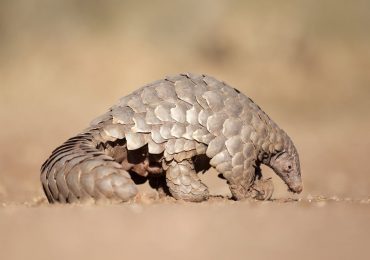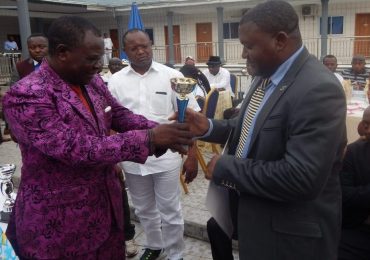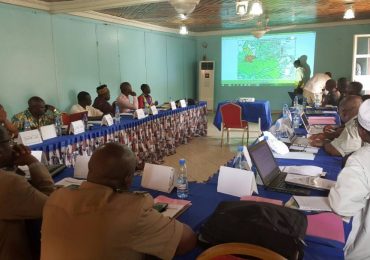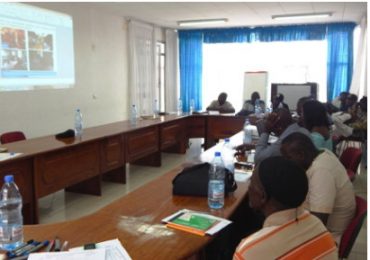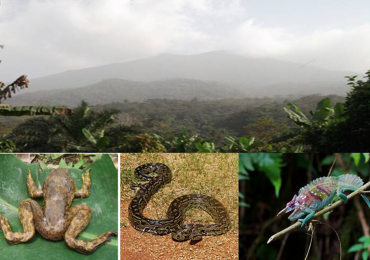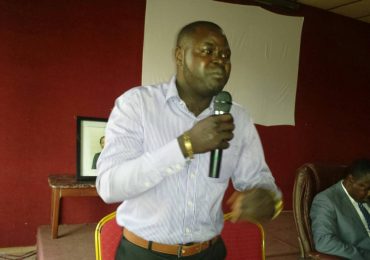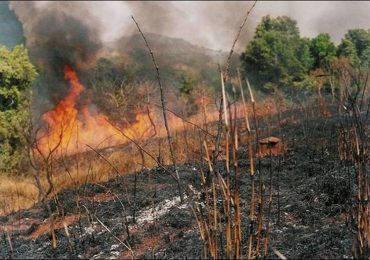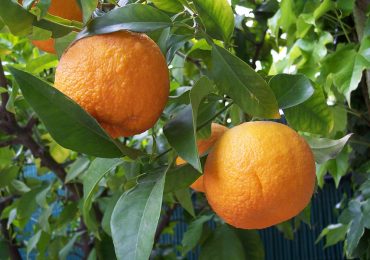As 2015 came to an end and we entered 2016, it is time for us to reflect on the best conservation interventions of the past year! Rediscover all the best efforts of the past year; from the unleashed power of our team from the Threatened Trees of Mt. Cameroon Area; their relentless forays into the wild to hunt for seedlings of Tiger wood, mahogany or countri onion for transplanting, to Trees for the Future, our formidable Bio-monitoring squad, the Access Benefit Sharing side, right to the department of Livelihood and Economic Development. And of course, Communication!
Cameroon’s iconic landscapes and its animals and plants, some of which are endemic to the country, constitute one of the richest ecosystems on earth. It is an incredible hotspot of biodiversity accommodating endangered species such as Tiger wood, the Cross River Gorilla and the Nigeria-Cameroon Chimpanzee. Logging companies and plantation companies continue to destroy much of the rainforest, further endangering the country’s already fragile biodiversity. Consequently, communities who depend on the natural environment are driven into poverty. They in turn are forced to become threats to the fragile ecosystems.
The conservation of the environment and especially the forest becomes a critical problem in societies that rely upon wood for fuel. This resource uses up natural forest resources and does have environmental and social costs. There are dangers to the plant, animal and bird species dependent upon the natural (forest) ecosystem. These species lose their habitats, food and medicinal sources as the forest is depleted. The very humans, who are also dependent on the ecosystem and are primary destroyers of the forest, usually risk losing much more in the long run – rising temperatures, loss of soil fertility, and irregular weather patterns that affect low crop yields and fresh water sources.
The energy requirements in rural areas are still largely supplied by wood sources in the forests. Since gas and hydroelectricity, the major sources of energy in urban areas, are out of reach for most of the rural population with solar energy and nuclear power not even dreamt of, rural dwellers depend entirely upon fuel wood for their energy sources and some kerosene for lighting.
Besides converting forests to farmlands, the rural populations turn to wood, which they cut from the forests to fulfil their energy needs. This further endangers the ecosystems as forest cover is removed. Agro-forestry species have the ability to reduce this trend by supplying fuel wood at maturity.
In 2015, ERuDeF and her partners worked with the people of the Northwest, Southwest, Littoral and West Regions and elsewhere to not only raise awareness and the need to defend and protect their natural environments, but to also raise their standards of living through agroforestry practices. So the use of fuel wood from the forest is expected to show a marked decrease in the nearest future as farmers will be supplying their kitchens from stocks of mature agro-forestry trees.
We had a full year of hard work that rewarded us with successful outcomes.
From the elaboration of a management plan for the new Tofala Wildlife Sanctuary in the Southwest Region whose creation ERuDeF facilitated in collaboration with the Ministry of Forestry and Wildlife and the pioneer strides in the Access Benefit Sharing (ABS) Echinops project to the community forest protection modelling.
We were fortunate for all the great emerging results from these environmental conservation actions and activities that brought us a huge amount of really memorable interventions thanks to our partners whose support is a major part of our successes – Tusk, Man & Nature, Taiwan Government, Trees for the Future USA, MANE, The GEF Small Grants Programme, African Conservation Foundation, Fauna & Flora International, Agence Francasie de Developpement, IUCN, thewaterloofoundation, The Mohamed bin Zayed, the Ministries of Forestry and Wildlife, Agriculture and Rural Development, Environment, Protection of Nature and Sustainable Development, the French Embassy (SCS), Helsinki ZOO.


